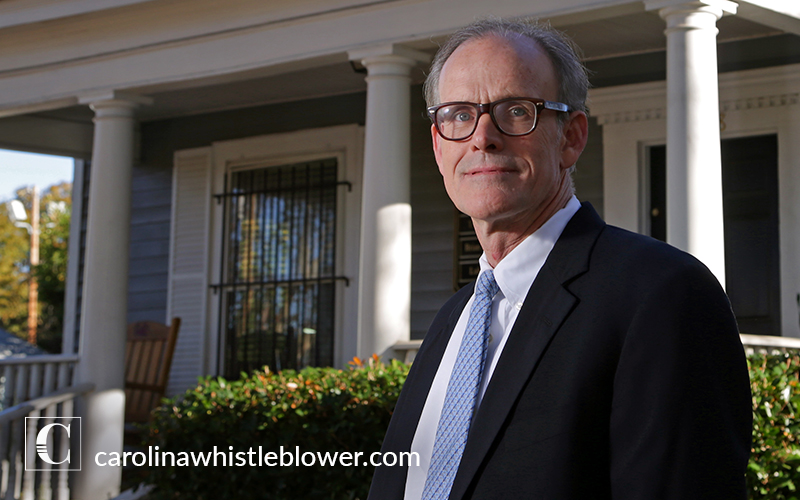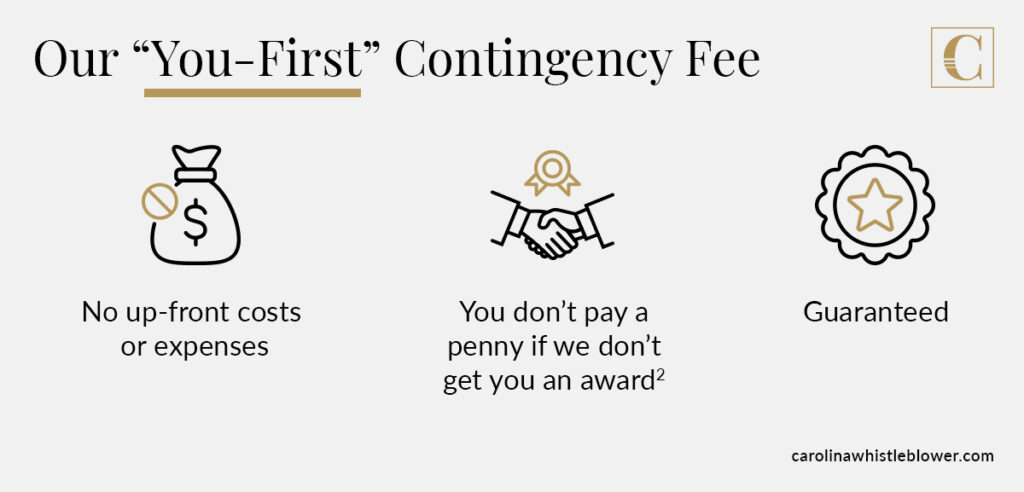As a whistleblower lawyer and former U.S. Attorney, I’ve gotten this question pretty often over the years. Most of the people I’ve helped wanted to get as far away from employer fraud as possible, as quickly as possible.
That’s perfectly understandable. However, there are two primary reasons not to quit your job where you suspect or know your employer is committing fraud against the state or federal government: fairness and access.
Let me explain.
Reason #1 not to quit your job: Fairness

Quitting brings with it many uncertainties and may mean you can’t take advantage of unemployment insurance. And if you can’t disclose the reason why you resigned, it may make it more difficult to find a position with another company.
In general, quitting your job hurts you, not the company committing the fraud. It also makes it a lot easier for your bosses to pinpoint where your otherwise anonymous whistleblower complaint came from.
We can help you weigh all your options and decide what’s right for you. We have ways to try to protect you from retaliation, and we can help you seek a maximum whistleblower award for stepping forward. Of course, your whistleblower case requires evidence, which brings us to the second reason not to quit.
Learn more: The whistleblower process
Reason #2 not to quit your job: Access

Resigning eliminates the key advantage you have in pursuing justice against employer fraud: access to evidence. Whistleblowers are responsible for exposing most fraud against the government because they have access that outside investigators simply can’t match.
When we review a case, our initial step is to request a narrative from the potential whistleblower, detailing their beliefs about the fraudulent activities taking place. We then proceed to inquire whether there are any accompanying documents that substantiate the described fraud.
It’s far easier to gather those documents if you’re still employed. Your qui tam attorney can guide you in what evidence to collect that may interest the government in taking your case.
What evidence helps prove my employer is committing fraud?
Building strong qui tam cases against employers means gathering evidence. Keeping your job generally makes your case easier to build because you retain access to the documents, files, emails, and other evidence needed to support your whistleblower complaint.
This evidence may include proof of:
- False statements or false information, if that false information or false statement resulted in unearned or undeserved payments from the government (faulty invoices for Medicaid and Medicare, for example)
- Fraudulent claims leading to failure to pay what the government is owed, such as miscategorizing the types of goods or services being taxed, sold, or provided
- Any form of misrepresentation or false promises that lure the government into a relationship that does not deliver on the promise in some material way (such as companies telling the government they’re eligible for a project when they’re not or lying about capabilities in contracts during the bidding process)
- And many other types of evidence for the many forms of fraud
Your qui tam case greatly depends on the evidence you can provide that your employer has done material harm to the government – and therefore taxpayers. Companies aren’t likely to let former employees retain clearances and access to the evidence of wrongdoing. The best way for employees to put themselves in a position to receive a potential reward is to remain in the workplace.
Learn more: Dos and don’ts of becoming a whistleblower
What whistleblower rewards can I earn?
Working for a company that’s defrauding the government is, at best, uncomfortable. Staying at your job and gathering evidence of employer fraud takes courage and fortitude. Whistleblower laws recognize this and grant up to 30% of the government’s recovery as a possible whistleblower reward.
In that way, a successful qui tam case can give you a fair reward for your unique access to incriminating evidence. It’s fair because you can be compensated for the headaches you have to endure in helping the government expose employer fraud that would otherwise likely go unchecked.
Don’t quit; Call an experienced whistleblower attorney

What should you do if you suspect employer fraud? Hire an experienced whistleblower lawyer.
At Carolina Whistleblower Attorneys, we have dozens of years of combined experience helping employees hold their employers accountable for fraud – with or without the government’s help.1,4 We truly enjoy helping people like you navigate the complexities of your qui tam case.
Some of the giants our attorneys have taken on in their careers include4:
- Amgen
- PharMerica
- Hillrom
- Philips Respironics
- Bank of America
- Wells Fargo
- JPMorgan Chase
- Citigroup
- Doctors Care
- Rx America
It’s natural to be worried. Our You-First Policy is designed to help allay your concerns. And you needn’t worry about affording an attorney, either. We work on a contingency fee basis,2 which means our attorney’s fee arrangement is designed to benefit you:

We’ve lowered the barriers to legal representation – just tell us what you’re seeing, and we can advise you on the best course of action for you. For a free and confidential case evaluation, call us today at 1-888-292-8852 or use our secure online contact form.
Similar Articles
Hiring an Attorney | March 17, 2024
What Is a U.S. Attorney? And How a Former One Helps Your FCA Whistleblower Case
A U.S. attorney is a White House-appointed prosecutor and the top law enforcement officer for...
North Carolina Whistleblower | September 07, 2023
The Whistleblower Process in North and South Carolina: An Infographic
When people cheat the government, they are also cheating the taxpaying public that the government...
Government Fraud | July 28, 2023
What if the Government Decides Not to Pursue Your Whistleblower Case?
When a whistleblower files a qui tam lawsuit alleging fraud against the government, the Department...
Contact the Carolina
Whistleblower Attorneys
If you’re wondering if it’s a good idea to speak with a whistleblower lawyer about what you know, let us set the record straight.
- Corporate ethics hotlines can be risky and may lead to termination. If you’ve already done this, call us immediately.
- Your coworkers could be aware of the fraud – or complicit in it – and you should not talk to them about it.
- The first claim to be filed under the False Claims Act can proceed – if you’re not first, you’re at a serious disadvantage and may get nothing (another reason not to speak to your coworkers about it).
- A confidential discussion costs you a few minutes, but could save you time, stress, and money.
"*" indicates required fields
